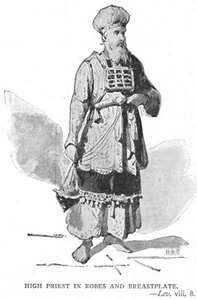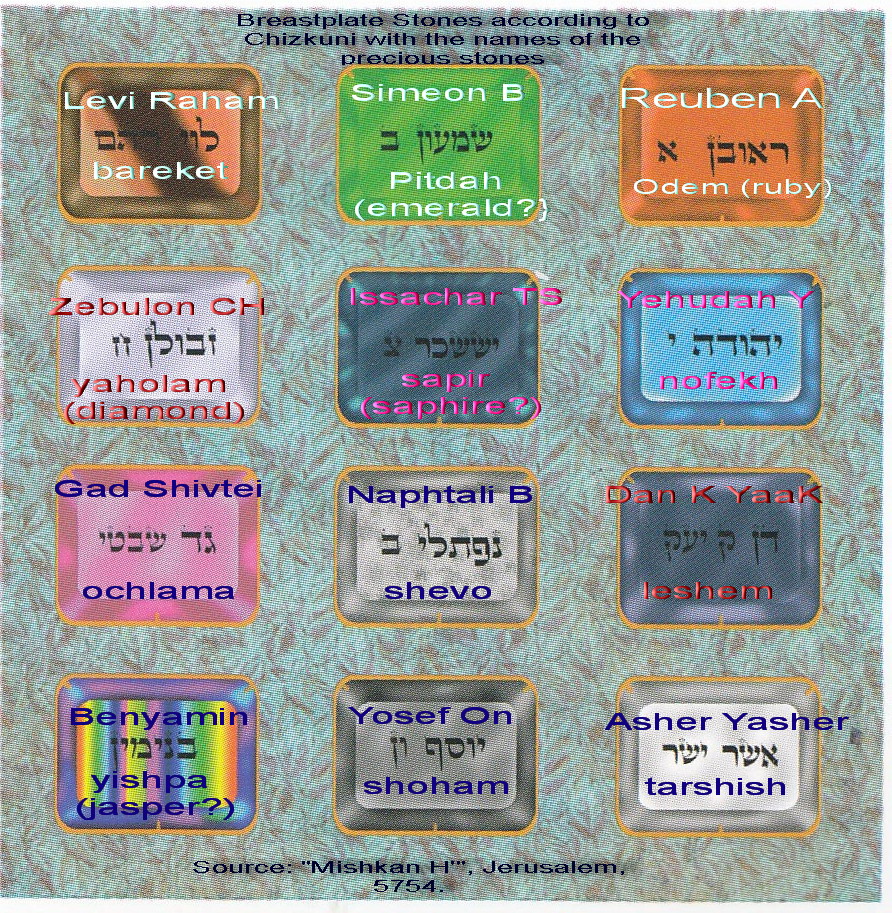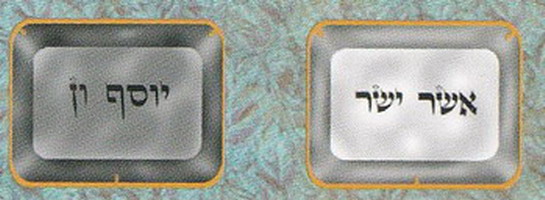| The Names "Yeshuron" and "Asher" |
| Two Different Depictions of the High Priest with the Breastplate | ||

|  |
 |
The Israelite Tribe of Asher received the following blessing from Moses: Deuteronomy 33: Here, according to the Commentaries, ends the blessing to Asher. There follow general words of blessing to the whole of Israel. We however feel that these extra words of blessing are ESPECIALLY pertinent to the Tribe of Asher. One of our reasons is the very placement and context of these blessings that seamlessly seem to follow on after the blessing to Asher. Other reasons exist including the fact that the God of Yeshuron is referred to. Yeshuron means Israel in general but is particularly applicable to both Joseph and Asher, with the emphasis on Asher. Several indications help substantiate this, including the opinion of Chizkuni that the name Yeshuron on the Breastplate of the High Priest was mainly on the stone of Asher, alongside the name of Asher. It was also partly on the stone of Joseph. Joseph too has a special pertinence to the name of Yeshuron and its associated blessing. Asher needs to weld himself to Joseph. Deuteronomy 33:
In our article, "Biblical Asher",
sub-heading, 1. The Blessing to Asher and Jeshurun |
The Breastplate Names (in Hebrew) according to the Chizkuni. |

|
Below we have the order of the Tribes on the Breastplate as understood by Chizkuni. | ||
Levi | Simeon |
Reuben |
Zebulon | Yissachar |
Yehudah |
Gad | Naphtali |
Dan |
Binyamin | Yosef |
Asher |
Below we have the order of the Tribes together with the words: ABRaHaM, YiSTCHaK, YAACoV, ShiVTeY YeShuRON (Tribes of Jeshuron). | |||
Word Spelled (from right to left.): |
RaHaM | B |
A |
Word Spelled (from right to left.): |
CHa | TS |
Yi |
Words Spelled (from right to left): |
ShiVTeY | V |
YaaKo K |
Word Spelled (from right to left): |
| ON |
YeShuR |
| Breastplate Names of Yeshuron, Asher, and Joseph: Read from right to left. | |||
  Reading, from right to left, we have the first part (YSR) of the name Yishuron (YiShuR-ON) on the stone of Asher, and the second part (-ON) on the stone of Joseph.
This indicates an especial application of the name Yeshuron to Asher and also to Joseph. The portion of the name (-ON) however on the stone of Joseph is a suffix (and of less letters) and therefore possibly of lesser significance. The Tribes of Asher and Joseph (Ephraim and Manasseh) were often closely intertwined.
| |
Conclusion: In a separate article we hope to consider the additional blessings given to Israel (especially Joseh and Asher) indicated through its name Yeshuron in the blessing of Moses (Deuteronomy 33).
For more articles concerning the Tribe of Asher, |

